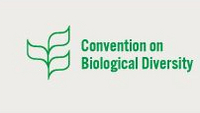Convention on Biological Diversity (CBD) and Nagoya Protocol (NP) on Access to Genetic Resources and the Fair and Equitable Sharing of Benefits Arising from their Utilization (ABS)

Implications for culture collections, users and depositors
It is part of DSMZ's responsibility to ensure that depositors of organisms in the culture collection, as well as recipients of cultures are aware of their obligations under the Convention on Biological Diversity and its Nagoya Protocol. Of particular relevance in this respect is article 15 of the CBD. This article emphasizes the sovereign right of individual countries to genetic resources within their borders and states that no such materials should be removed without agreement between the collector of samples and the competent authority in the country of origin of the microbial genetic resources. It is the responsibility of depositors and end users to ensure that these undertakings are complied with.
Notice to Recipients - End user obligations under the CBD and the NP
It is the responsibility of all recipients of DSMZ cultures to ensure that the use of organisms received complies with the general requirements of the CBD and the NP and with any regulations drawn up by the country of origin of the culture and your own country. In particular commercial uses of the cultures are not permitted unless duly negotiated with the country of origin. Additionally, with a view to traceability, passing on of cultures to third parties is not permitted. DSMZ accepts no responsibility for the breach of any requirements relating to the CBD or NP.
Notice to Depositors
As a consequence of the coming into force of the CBD and its NP it is your responsibility as depositor to ensure that the microbial genetic resources were collected in agreement with the country of origins' regulations (see for example ABS Clearing House) and that the deposit of the samples in an open collection does not infringe any national obligations in your country. DSMZ will not accept deposits without disclosure of the country of origin (see DSMZ- accession form) and a respective documentation.
Further Information
The CBD came into force on the 29th December 1993 and its NP came into force on 12th October 2014. While the full impact of the CBD and the NP on Culture Collections - including their depositors and end users/customers - is still awaited, their impact on scientists isolating new organisms and those carrying out research and development on such organisms also requires information, clarification and resolution. A particular concern for microbiology is that both, the CBD and the NP, were formulated mainly with animals and plants in mind, therefore they do not fully appreciate the issues relating to microorganisms and their dissemination. Hence, the consequences of the NP and precisely how it is to be legislated for, is a mayor issue for the microbiological scientific community. For Europe, the EU Regulation 511/2014 on compliance measures for users from the Nagoya Protocol on Access to Genetic Resources and the Fair and Equitable Sharing of Benefits Arising from their Utilization in the Union is applicable as of the date of coming into force of the NP, as is the 12th October 2014. The main focus of this EU Regulation is the due diligence aspect which all users – be it academic or industrial – and collections as depositaries have to observe. This European Law is now being implemented into national law in the EU member countries.
Website CBD: www.cbd.int
Nagoya Protocol
EU Regulation 511/2014

